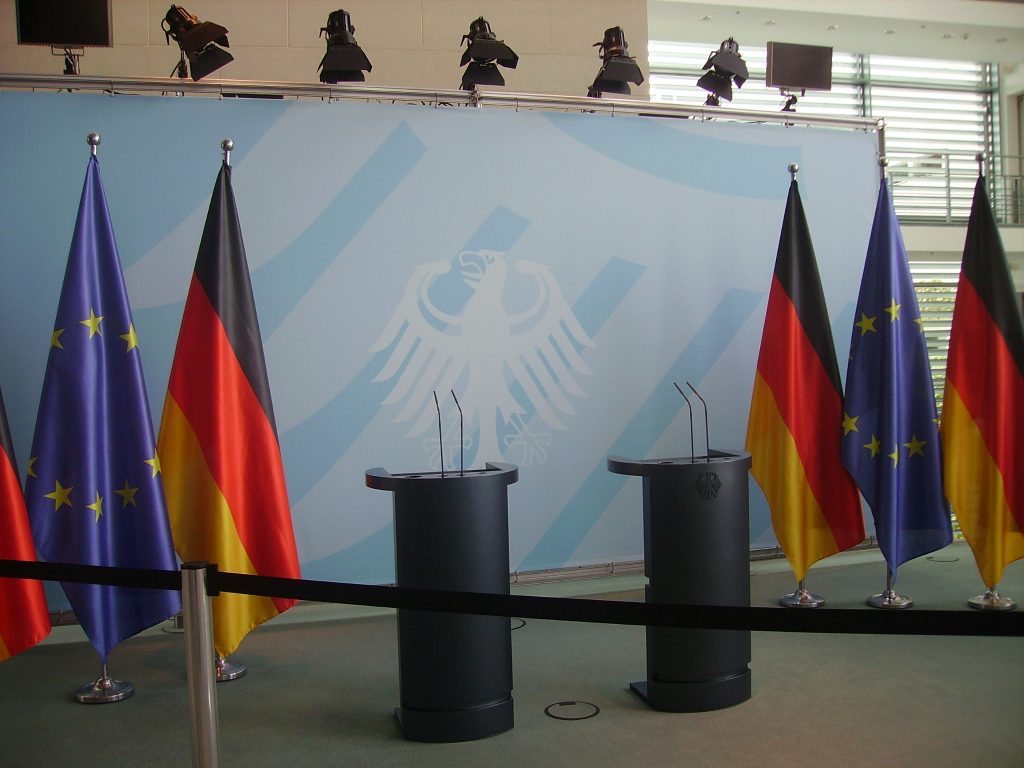
The political climate in the middle east has in recent years been in a vulnerable state. The country of Iraq is getting close to going bankrupt due to the decrease in oil prices in recent months. Also, the politics in the country are unstable due to the parties not being able to agree on who should be the new prime minister. To further add to the tensions within the country many of the citizens are struggling to face the reality of COVID-19. In an article, The Risk that Iraq Might Fall Apart, in the Economist the author further discusses the citizens attitudes toward COVID-19. The author writes, “Many see COVID-19 as either a Zionist hoax or a fast track to paradise, so they feel no obligation to comply with the government’s order to stay inside.” (Economist, 1). With all these crises occurring within the country of Iraq the government is at a high risk of falling apart.
One of the biggest threats which the country is facing is the health of its economy. Due to the recent drop in oil prices the country is facing a major budget deficit. In an Article in the Washington Post author Mustafa Salim describes the economic struggles Iraq is facing. He writes, “Iraq relies on oil sales for 90 percent of its revenue and has no clear plan to make up for the shortfall of billions of dollars that tanking global prices will likely spark. Among other things, this would make it impossible for the government to cover the wage bill for some 3 million employees.” (Salim, 4). The Economist article further explains this, “As it is, the government cannot afford to pay salaries in the ever-expanding public sector. It has around $60bn in cash reserves, but that could run out by the end of the year, leaving it dependent on a loan from the IMF, which may not be forthcoming.” (Economist, 2). On top of this if Iraq is unable to receive aid from the IMF they only have a small private sector, which would unfortunately not be able to provide much aid. If Iraq’s reserves run out it will also be difficult for them to seek aid from other countries due to the global economy declining due to the COVID-19 crisis.
Another issue which Iraq is faced with is selecting a new prime minster. Their former prime minister Adel Abdul-Mahdi resigned in November. There are currently three candidates to take his place, Muhammad Allawi, Adnan Zurfi, Mustafa al-Kadhimi. The Economist article describes the candidates, “The first, Muhammad Allawi, gained the backing of important Shia parties and their associated militias. The second, Adnan Zurfi, is trying to win over parliament, but her is opposed by Iran and is also unpopular with Shia politicians, who cannot agree on a successor.” (Economist, 3). Al-Kadhimi is the third candidate to be chosen to be prime mister in the past few months. He is described to be the candidate which shows the most promise to lead Iraq through this trying time. Author Mustafa Salim further describes Al-Kadhimi’s strengths. He writes, “Officials and experts predict that Kadhimi, a backroom operator with a reputation for juggling alliances in Washington, Tehran and wider region, is likely to overcome the hurdles that felled two candidates before him, in large part because he has the rare distinction of being acceptable to both the United States and Iran.” (Salim, 1). By having a lack of political stability in such a trying time causes the country of Iraq to be left in a highly vulnerable state.
Further contributing to the laundry list of obstacles Iraq is currently facing is the influence of militias within the country. Iraq has a history of struggling with different militia groups trying to gain power of the country. Now Iraq is beginning to also experience militia groups coming from Iran to try and gain power in Iraq. Author Salim describes these struggles more in depth by saying, “Iran backed militias and U.S. troops are facing off around Iraq’s military bases, and Islamic State militants remain a concern, biding their time and dreaming of a comeback.” (Salim, 1). This causes the issues of internal and external sovereignty to be a concern for Iraq as well as being faced with the tedious task of bored control.
Before even facing the COVID-19 crisis Iraq was in a vulnerable state. Now that it is facing this crisis with an unstable government and politics, decreasing economic health, and limited metical resources this may be the issues which pushes Iraq’s government over the edge.
Work Cited
The Economist. “The Risk That Iraq Might Fall Apart.” The Economist, The Economist Newspaper, 11 Apr. 2020, www.economist.com/middle-east-and-africa/2020/04/11/the-risk-that-iraq-might-fall-apart.
Mustafa Salim, Louisa Loveluck. “Iran and the U.S. Agree on Iraq’s Latest Nominee for Prime Minister. But Will Iraqis?” The Washington Post, WP Company, 10 Apr. 2020, www.washingtonpost.com/world/middle_east/iran-and-the-us-agree-on-iraqs-latest-nominee-for-prime-minister-but-will-iraqis/2020/04/10/21287918-78d4-11ea-a311-adb1344719a9_story.html.
